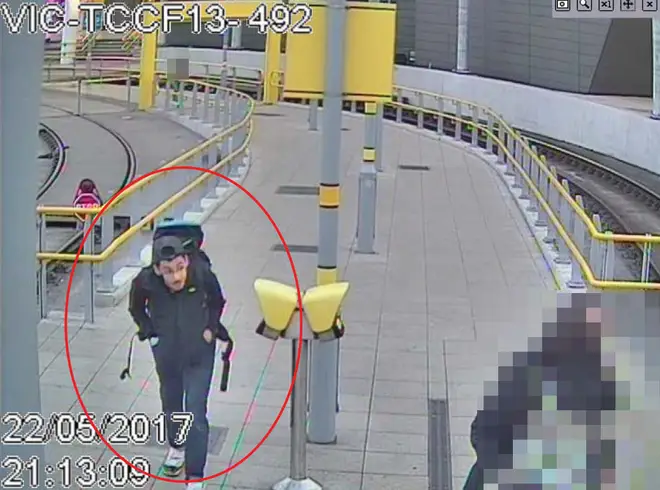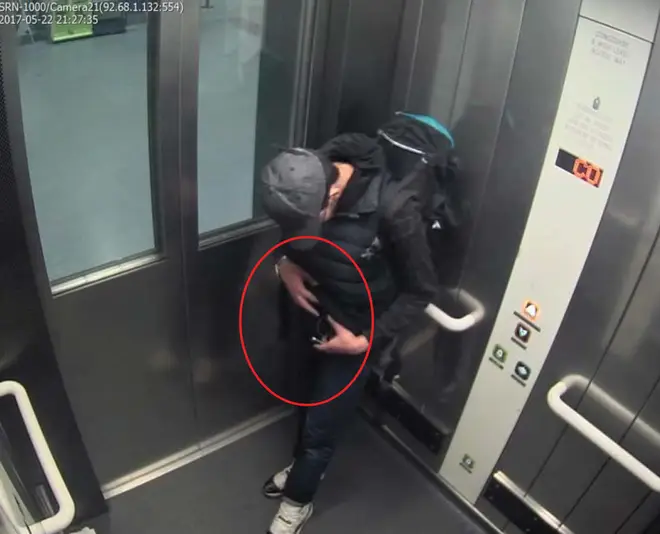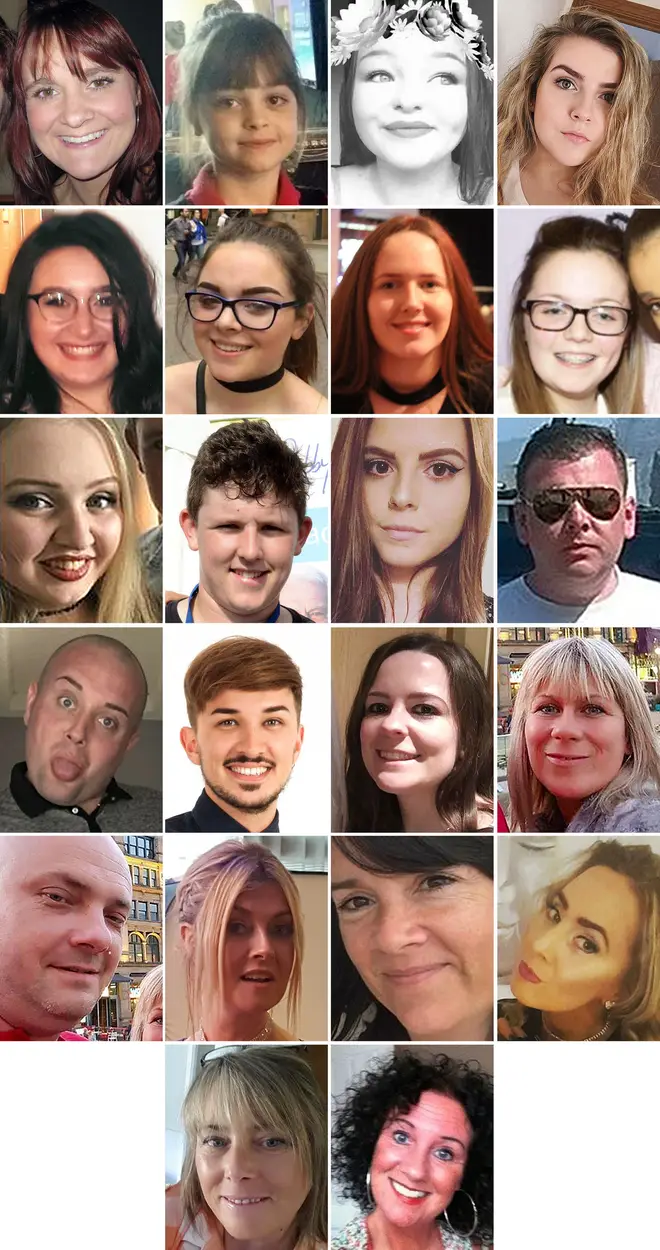
Richard Spurr 1am - 4am
27 October 2020, 19:07 | Updated: 27 October 2020, 22:46

A Manchester Arena security guard who was working on the night of the bombing has told a public inquiry he was "scared" of raising the alarm over fears of being branded a "racist".
Kyle Lawler, who was 18 at the time, was on duty when a colleaguetold him a member of the public had raised concerns about Salman Abedi, who was hanging around outside the Arena at an Ariana Grande concert.
The suicide bomber, dressed all in black and carrying a large, bulky rucksack, was reported by concerned parent who thought it looked "dodgy" and had asked Abedi what he had in his backpack.
Mr Lawler said he had received training in what signs to look for, but was "naive"and thought a terror attack "wouldn't happen to me".
He was told about Abedi around six minutes prior to the explosion, but failed to alert the control room before the bomb was detonated.
In a previous statement which was read out to the inquiry, Mr Lawler said he was reluctant to challenge Adebi over fears of being called a "racist".

He said: "I was scared of being wrong and being branded a 'racist' - if I got it wrong I would have got into trouble. It made me hesitant on what to do by overreacting or judging someone by their race."
He agrees this was the main reason he did not immediately raise the alarm and he also had trouble getting through to his bosses over the radio.
Minutes later Abedi, 22, left his position out of sight of CCTV in the foyer of the Arena, known as the City Room, and walked towards the crowd emerging at the end of the gig at 10.31pm on May 22 2017.
The inquiry heard he was smiling seconds before he detonated his home-made rucksack bomb, packed with thousands of nuts and bolts, murdering 22 bystanders and injuring hundreds more.
Mr Lawler told the inquiry he had had some counter-terrorism training provided by his employer Showsec, and he was aware the terror threat level at the time was "severe", meaning an attack was likely.

He said: "I think I was naive at the time to the situation. It was one of those things, it was possible but it wouldn't happen to me.
"You see it on the news, it's not on your doorstep."
Sir John Saunders, chairman of the inquiry, asked him: "It happens to other people?" Mr Lawler replied: "Yes."
He had done some unpaid training provided by Showsec, and knew that the protocol if a suspicious person was spotted was to observe and report to the control room at the Arena, he said.
The inquiry heard that Mr Lawler, from Salford, left school at 16 and began an apprenticeship working 7am to 4pm, before going straight to Showsec events from 5.30pm to 11.30pm, working as a £4.24 per hour steward.
Before the bombing, he said, he had never dealt with a report of a suspicious person and was not aware that where Abedi was hiding in the foyer was a CCTV blindspot, thought to have been identified by the bomber during previous "hostile reconnaissance".
The public inquiry is looking at the background circumstances before and during the bombing and is expected to last into next spring.
The hearing continues.